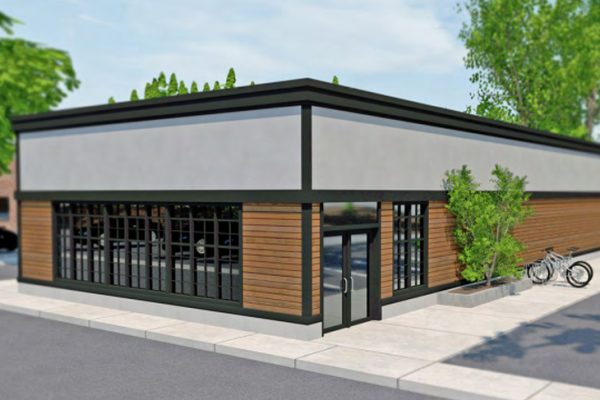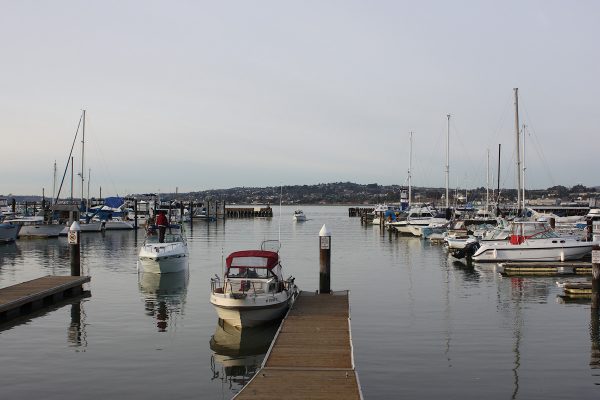MARTINEZ, Calif. – Martinez Planning Commission will review proposals Thursday for the city’s proposed Cannabis Management Program.
Community and Economic Development Director Christina Ratcliffe wrote in her report that the Commission’s directions on topics under consideration for the program would be incorporated into a draft ordinance, which the panel will see in 2019.
This is the latest step Martinez is taking under California law that has made both medicinal and adult recreational use of marijuana legal in this state.
California’s own regulations have been combined under Senate Bill 94, signed June 27, 2017, by Governor Jerry Brown to create the Medicinal Adult Use Cannabis Regulation and Safety Act (MAUCRSA).
However, state law also allows local agencies, such as city government, to enact their own regulations as well.
To that end, the city offered residents two workshops April 10 and 19, not only to bring the public up to date but also to hear what they considered “reasonable” local regulations, Ratcliffe wrote in her report.
In the meantime, Martinez adopted and later extended an urgency ordinance temporally banning commercial cannabis activities, except for a pending application for a medicinal cannabis dispensary, while city staff researched and began crafting the proposed local ordinance.
At its Sept. 5 meeting, the Council told its staff to limit the total commercial cannabis companies to seven, of which two would be retail operations, one would be a manufacturer, one would be a distributor, one would be a testing lab and no more than two would have delivery licenses, and those would be associated with retail operations.
While the Council decided it didn’t want to consider commercial cultivation or micro-businesses, Ratcliffe wrote that the new ordinance would be evaluated for potential changes a year after adoption.
City staff has proposed putting testing laboratories in the city’s research and development, light industrial, heavy industrial and controlled industrial zones.
Distributors and manufacturers would be placed in the light, heavy and controlled industrial zones.
Retailers would have the most options, qualifying for neighborhood commercial, central commercial, service commercial, thoroughfare commercial and light industrial zones.
The state’s 600-foot buffer from places called “sensitive receptors,” such as schools through 12th grade, day care centers and youth centers, is proposed as the city’s policy, too, Ratcliffe wrote.
Some of those are on Pacheco Boulevard, Arnold Drive, along Muir Road south of California Highway 4, Alhambra Avenue north of Highway 4, portions of Howe Road, northern portions of the city’s downtown business district and north of the downtown area and the Union Pacific Railroad tracks.
Because a decision on the only active application, Firefly’s request for a medicinal marijuana dispensary, hinges on whether a gym and training center in the same building could be considered a “youth center,” Ratcliffe has given the Planning Commission several alternatives on which to comment.
Ratcliffe wrote, “What the Council has directed, and what staff is seeking, is the Planning Commission’s reasoned judgement on what definition would best serve the Martinez community.”
The California Health and Safety Code said a youth center is a “public or private facility that is primarily used to host recreational or social activities for minors, including, but not limited to, private youth membership organizations or clubs, social service teenage club facilities, video arcades or similar amusement park facilities.”
But that leave some portions of that definition open to interpretation, such as what percentage of youth means a place “primarily” is used by minors, Ratcliffe wrote. But Martinez has not incorporated clarifying definitions in its codes, either, she added.
Cannabis consultant HdL has offered an elaboration, adding private youth membership organizations, teen club sites; video arcades in which 10 or more games or machines are operated and minors legally are allowed to conduct business; and parks, playgrounds and recreation areas designed to be used by children and which have play equipment, including play grounds designed for athletic activities, whether on public or private land.
However HdL’s definition said private martial arts, yoga, ballet, music or similar type studios, private athletic training gyms, pizza parlors, dentists offices or doctor offices primarily serving children wouldn’t be included.
Still, that didn’t offer metrics to clarify the word “primarily,” so Ratcliffe is providing the Commission several options, such as more than 50 percent of memberships are minors, more than 50 percent of operating hours include programs or activities in which minors regularly participate, or more than half of total usage time of a business includes participation by minors.
Included in her proposed definition are more than half of the programs or activities were eligible for participation exclusively by minors and more than half of the programs or activities actually were exclusively for minors.
The programs and activities would be defined as classes, training, readings, lectures, symposiums and other organized activities, and “participate” means actual participation or active use, not the presence of minors who are accompanying participating parents or guardians.
The numbers would be gathered for any consecutive three-month period within the 12-month period before the canna is business application date.
Another definition Ratcliffe submitted describes a youth center as “a building or facility in which programs for youth are routinely provided.” That definition includes youth programming, including those at a library, swim center, club, tutoring site, parks with play structures or fields or a “physical fitness facility that provides regular programs for youth.”
Or the city might define “youth center” as a public or private place that is “used to host recreation or social activities for minors, including, but not limited to, private youth membership organizations or clubs, social service teenage club facilities.”
Her presentation will include a proposed flow chart that would show how the proposal review process would work.
First, the city would issue a request for proposals with guidelines, with a 60-day time mat for those submissions; evaluation and ranking of those proposals by a Proposal Review Committee made up of the police chief, financial director, Community and Economic Development director and an independent commercial cannabis expert.
The review committee would send applications with passing scores to the Council for final consideration.
A candidate whose proposal is not recommended to the Council can appeal the review committee’s decision. That appeal would be heard by the Council.
The Council would determine which proposals, if any, it wants to give a conditional certificate. Those certificates would be limited to the maximum allowed for each category.
Once the certificate is issued, the candidate may apply for appropriate permits, which would be evaluated under the California Environmental Quality Act.
The businesses must be operating within a year, or the conditional certificate would become void, although extensions might be granted, Ratcliffe wrote.
During the public workshops, residents worried about the cash nature of cannabis businesses, since they can’t use banks licensed by the federal government. That concern extended to worries about robberies and security.
They also expressed concerns about the volume of inventory that would be displayed at one time, proper entry of point of sale and inventory control information, training of employees in inventory tracking, odors from cultivation and storage, use of pesticides, water and electricity and light pollution.
Regarding manufacturing, residents said they were worried about volatile gases and industrial solvents stored on-site, internal product theft that could feed the black market and contamination by mold and bacteria. They also wanted delivery companies to be bonded.
Ratcliffe’s report suggested that monitoring and provisions of the permitting process should address most of those concerns.
The Planning Commission will meet at 7 p.m. Thursday in the Council Chamber of Martinez City Hall, 525 Henrietta St.



